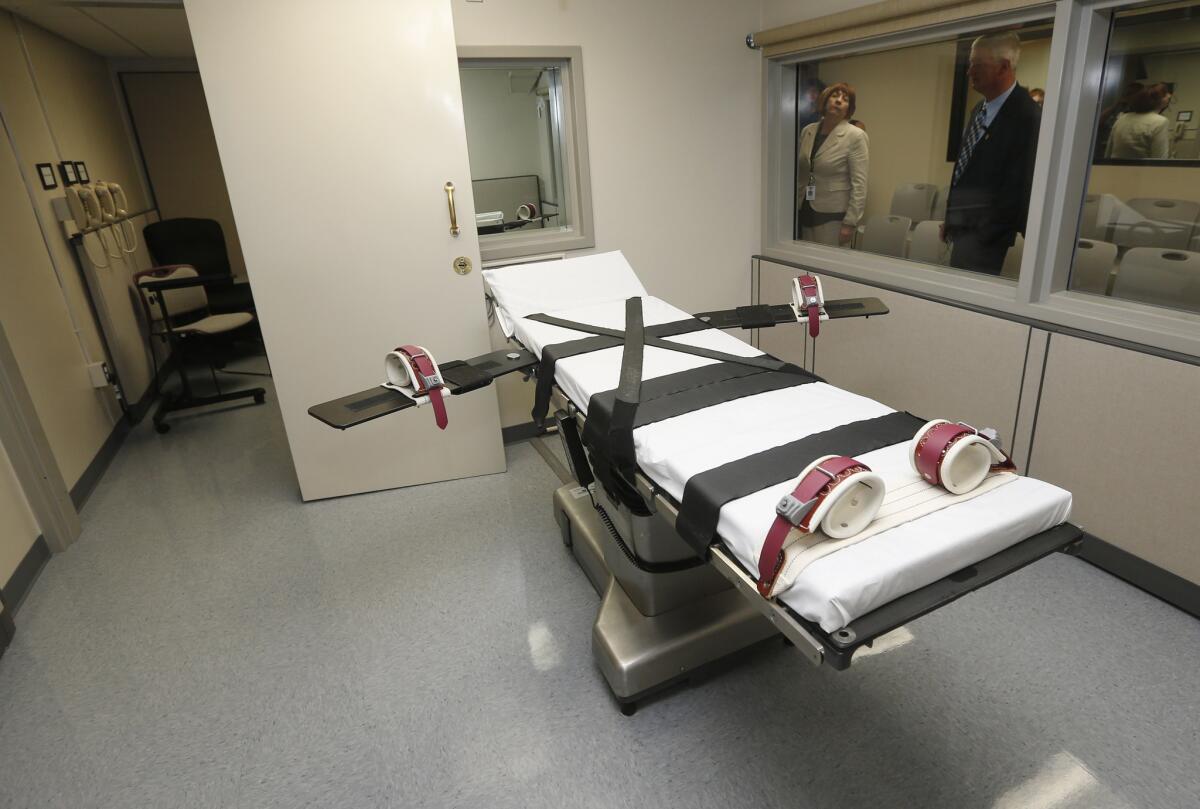Editorial: Kinder, gentler forms of capital punishment are still barbaric

- Share via
The state of Oklahoma, which developed the nation’s first lethal injection protocol for executions, may soon approve what lawmakers say is a new, even more humane way of killing people. Following the advice of a criminal justice professor who is also a former assistant attorney general of Palau — note the lack of medical background — the state Legislature now wants to try a method called “nitrogen hypoxia.”
Utah is also changing the way it ends the lives of condemned prisoners. This week, Gov. Gary Herbert signed a bill allowing execution by firing squad when no drugs are available to create lethal injection cocktails. Opponents immediately denounced the plan as “barbaric” and “brutal.”
In California, the state has wrestled with updating its lethal injection protocol ever since a judge imposed a moratorium on it. Another judge ruled that California’s capital punishment system is too arbitrary and too slow. In both cases, the judges said the state was violating the U.S. Constitution’s ban on cruel and unusual punishment.
There’s nothing new about this debate over how to make executions kinder, gentler and less painful. And in one sense, that’s reasonable. If the state is going to kill people, it should certainly try to minimize the moaning and writhing that has characterized so many recent executions.
But on another level, this is a fool’s errand, an exercise in sugarcoating. You can’t make humane something that is intrinsically inhumane. The United States should long ago have joined most of the rest of the world in abolishing the death penalty. Not so much because there might be (and often is) pain and suffering involved but because capital punishment is flawed, expensive, subject to manipulation, applied disproportionately to minorities, not an effective deterrent and, at the end of the day, irreversible. It is fundamentally immoral for the state to punish killers by killing them.
Some methods of execution might be less painful than others, and the illusion that someone might be gently sent off to permanent sleep may make us feel more civilized about a process that has, in the past, involved hanging, electrocution, beheading, firing squad and poisonous gas. But even when it’s all dressed up — even when it’s talked about in terms of science and protocols and humaneness — capital punishment remains a barbaric act.
California corrections officials currently are trying to devise a new protocol to meet court objections to the way it has been conducting its lethal injections. The Legislature should bring this farce to an end by pressing for an initiative to abolish the death penalty, as 18 other states have already done.
Follow the Opinion section on Twitter @latimesopinion and Facebook
More to Read
Sign up for Essential California
The most important California stories and recommendations in your inbox every morning.
You may occasionally receive promotional content from the Los Angeles Times.













